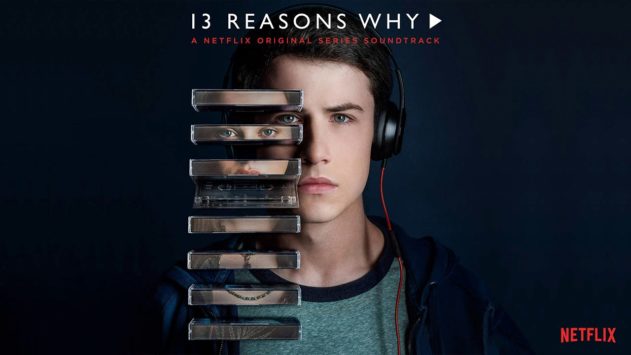After we finished each episode, my son and I talked about it for hours.
I didn’t want my son to watch “13 Reasons Why.” He’s been hospitalized twice for suicidal ideation, and the threat of suicide is always looming over my family. I worried that the show would glorify suicide, and perhaps even push him further into its grip. What I didn’t expect was that it would bring him — and me — one step closer to healing.
It was my son who told me about “13 Reasons Why.” I watched it because he asked me to, but I wasn’t eager to see it. I’ve spent months of my life terrified that every missed phone call or unanswered yell down to his bedroom means he’s dead. The last thing I thought I needed was to watch a show that depicts my worst nightmare.
My son and I watched the show together. Even though he’d already watched the full season in a marathon streak by the time he told me about it, he watched it again with me. Every time I’d get angry at Hannah, he’d tell me to keep watching. I got angry at Hannah often, maybe because it’s safe. I can’t blame my own son for struggling with suicide. But I can blame a TV character for being by turns imperfect, irrational, and quintessentially human.
After we finished each episode, my son and I talked about it for hours. We discussed everything from Hannah’s inability to see how much people cared about her when she was in the depths of despair to the cruelty (sometimes even in ignorance) of her friends. We talked about suicide in a way we’ve never been able to do before, and one that felt less emotionally charged.
The episode where Hannah died was hard for both of us to watch. I felt bile rising in my throat, but I forced myself to watch the graphic scenes. Without those scenes, Hannah’s character could be viewed as empowered by suicide—achieving power in death that she couldn’t achieve in life. But those scenes showed the painful, ugly reality of suicide in a way that my son and I needed to see. There’s no glorifying a life lost in a bathtub.
We both cried when we watched her mother scoop up Hannah’s lifeless body. My heart pounded in my ears, and I did my best not to imagine myself in her shoes. But as I continued watching the show, I realized that Hannah’s parents weren’t even a footnote in her suicide. She made 13 tapes to describe in intimate detail the role her friends played in her death, but her parents didn’t even get a note. For the first time, I let myself consider that my son’s suicidal thoughts aren’t my fault.
Everyone has tried to tell me that my son’s depression and suicidal thoughts aren’t my fault. Friends have consoled me and therapists, nurses, and psychiatrists have told me about brain chemicals and depression. I’ve grasped at their words, but they’re no match for the fear that beats inside me. It’s comforting on some level to think it’s my fault because if it’s my fault I have the power to change it. But it’s perhaps even more terrifying to believe that this is something I’ve done to my son, whether through bad parenting, crappy genes, or a combination of the two.
The concept that my son’s suicidal thoughts weren’t my fault never felt real to me until we watched “13 Reasons Why” together. As we talked about it, I realized how much his focus on Hannah’s friends matched her own. Her parents were there, kindly figures she never confided in, but they were neither the driving force behind her suicide nor her saviors. Even when she sought help, she chose a school counselor, not her mother. There was no explanation or reason why, but there didn’t have to be. Hannah focused on the people who featured prominently in her life, and those people weren’t her parents. Her parents were the givens, taken for granted without a second thought.
Watching “13 Reasons Why” was the first time I allowed myself to consider that you can do everything right and your child can still end up dead. It felt safer to explore that idea with actors playing fictional characters on TV than applying it to my own household. Even though my son’s 17 years old now, and taking on more responsibility by the day, I wasn’t ready to give up the responsibility for his life. I clung to it desperately, trying to will him to stay alive, unwilling to see how much I was hurting myself and how little it was helping him.
Watching another mother, even a fictional one, willing her dead daughter back to life showed me how little control she, or I, have left. If our children kill themselves, it will not be because of us. It won’t be because we were too impatient one day, or got angry another day, or failed to be the perfect mothers we wish we could. It will be because depression won.
Jody Allard is a former techie-turned-freelance-writer living in Seattle. She can be reached through her website, on Twitter or via her Facebook page.
Other Links:

